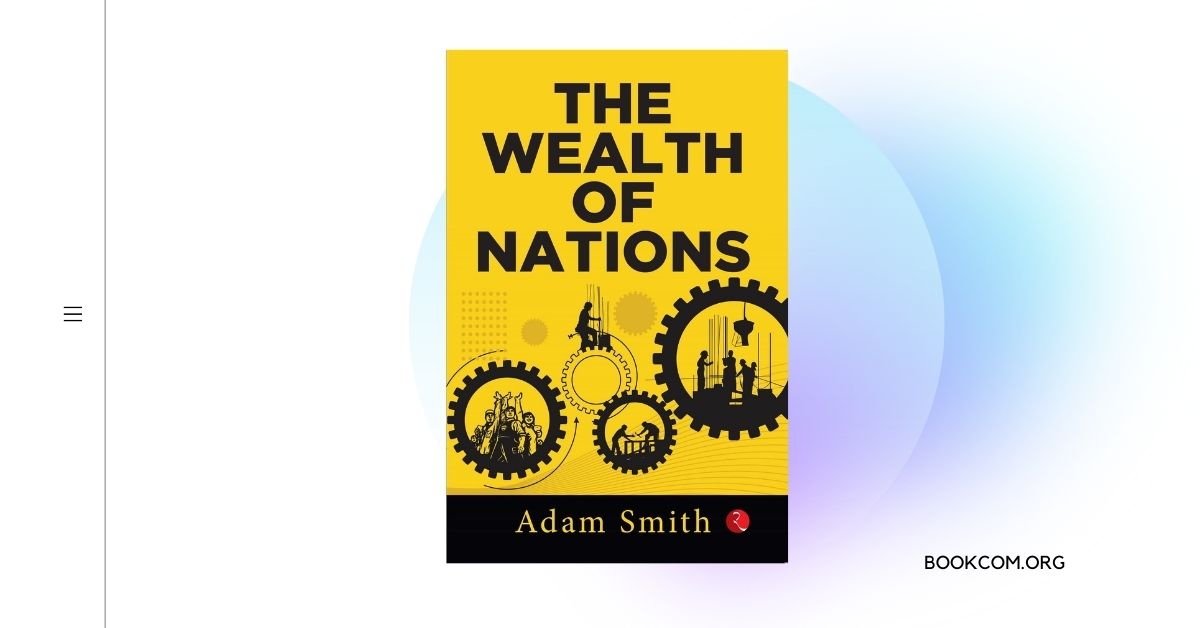“The Wealth of Nations” by Adam Smith is a foundational work in the field of economics, exploring the principles of capitalism, free markets, and the division of labor. Published in 1776, this seminal book examines the nature of wealth creation, the role of self-interest, and the functioning of economic systems. Smith’s ideas continue to influence economic thought and policy to this day. This summary will delve into the key themes, notable concepts, and lasting impacts presented in the book, offering an overview of Smith’s ideas on wealth, markets, and the pursuit of economic prosperity.
Key Themes
The Invisible Hand: One of the central themes of “The Wealth of Nations” is Smith’s concept of the invisible hand. He argues that individual self-interest, when operating freely in competitive markets, leads to the overall betterment of society. Through the pursuit of personal gain, individuals unintentionally promote the welfare of others and contribute to the collective wealth of the nation.
Division of Labor: Smith explores the concept of the division of labor, emphasizing its role in increasing productivity and efficiency. He argues that by breaking down complex tasks into simpler components and having individuals specialize in specific roles, overall productivity can be significantly enhanced.
Role of Markets: Smith emphasizes the importance of free markets as mechanisms for determining prices, allocating resources, and coordinating economic activity. He advocates for minimal government intervention and regulations, promoting the belief that individuals pursuing their self-interest within competitive markets will lead to the most efficient outcomes.
Wealth Creation and Productivity: Smith explores the sources of wealth and economic growth, highlighting the significance of productive labor, technological advancements, and the accumulation of capital. He stresses that increasing a nation’s wealth involves fostering an environment conducive to innovation, investment, and the pursuit of individual economic interests.
Notable Concepts
The Theory of Absolute Advantage: Smith introduces the theory of absolute advantage, arguing that countries should specialize in producing goods or services they can produce more efficiently than other nations. Through international trade based on comparative advantages, nations can benefit from mutual exchange and expand their overall wealth.
The Labor Theory of Value: Smith discusses the labor theory of value, suggesting that the value of a product or service is derived from the amount of labor required to produce it. While Smith’s ideas on this concept have been subject to criticism and refinement over time, his discussions on the relationship between labor, value, and price remain influential.
Public Goods and Role of Government: Smith acknowledges the role of government in providing public goods such as infrastructure, defense, and justice systems. He argues that the government’s primary role should be limited to the provision of essential public goods and the enforcement of property rights, while avoiding excessive interference in the free market.
Lasting Impacts: “The Wealth of Nations” revolutionized economic thought and laid the foundation for modern economics. Adam Smith’s ideas have had a profound and lasting impact on our understanding of markets, wealth creation, and the role of self-interest in economic systems. The concept of the invisible hand, division of labor, and the benefits of free trade continue to shape economic theory and influence policy decisions around the world.
Also read:
Book Review: “The Wealth of Nations” by Adam Smith
For more information about the book, you can visit:



